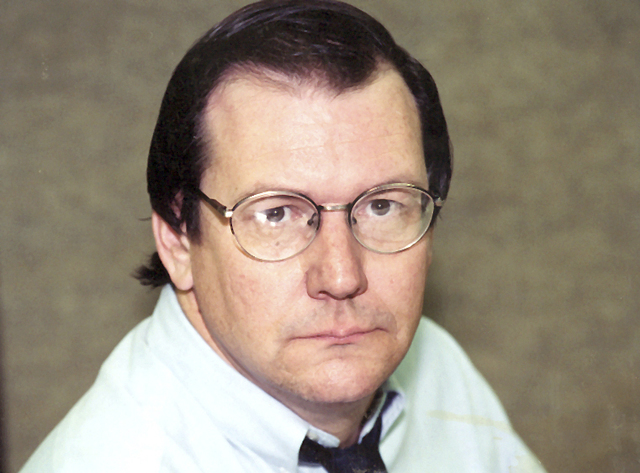Myers: The role of protest now
In November 1967, President Lyndon Johnson set out on a speech tour across the country.
Frankly, I don’t remember what he talked about, and I doubt many people do. That’s because most of the comment and discussion was not about the content of his speeches but about WHERE he was speaking. He and his Vietnam war were so unpopular by then that he spoke only where he could be certain of friendly audiences – military bases.
I recalled that speech tour last week when Indiana Gov. Mike Pence was booed as he arrived at a Broadway theatre to see the play “Hamilton” and the cast later read a protest statement to him. As Donald Trump’s running mate, Pence was finding that the hard feelings from the campaign were not fading after the votes were cast.
And if public appearances are being disrupted before Pence and Trump even take office, what will things be like four years from now?
It’s hardly news that the members of the public feels public officials do not hear them, or that they also feel people with money and lobbyists DO get a better hearing. With Trump so far filling his cabinet with insiders, little wonder that the protests are starting already.
Of course, members of the public are represented by their members of Congress, so why would they need to protest? Don’t their representatives do it for them?
The truth is that politicians and their handlers have become very good at creating the trappings of public support, of “manufacturing consent,” as Noam Chomsky has described it. And the fact also is that members of Congress are as much the problem as presidents.
In February 1998 President Bill Clinton wanted to launch a war against Iraq. He claimed Saddam Hussein was developing weapons of mass destruction and sent teams of his administration officials out around the country to sell the public on war.
In Columbus, Ohio, the administration team was Madeleine Albright, Defense Secretary Cohen, and National Security Advisor Sandy Berger. They spoke in a sports arena at Ohio State University and the reception was downright hostile. This was the heartland, yet anger at the proposed war was pronounced.
Did the administration listen? Well, at succeeding stops of the Clinton sales tour, the administrations started screening the audiences so that Clinton would get the kind of reception he wanted.
Of course, that didn’t help with getting his war. The dramatic Ohio State confrontation made the opposition to war respectable and no war was launched. But the Clinton people still got better at manipulating public gatherings. One step forward, two steps back.
It is fair to ask, why are hard feelings in 2016 not fading after the end of the campaign, as they usually do?
It’s not that hard to figure out. Trump achieved power by pitting people against each other. That’s not the kind of thing that dies out easily, like disagreements on health care or Wall Street regulation.
Nor is it necessarily a good thing to LET those feelings die. This was not a normal presidential campaign. It called on the worst of our people. The conduct of Donald Trump made people feel there was no threshold for behavior. Anything goes.
In addition, just as politicians listen only to those who tell them what they want to hear, members of the public seek out sources of news that tell THEM what THEY want to hear. It is often described as looking for echo chambers that validate their views. It’s also a really bad idea. Republicans and Democrats, liberals and conservatives need to hear each other’s views. They don’t have to agree. But they need to know what their opponents are thinking so that when they overlap, they can make something of it.
In the 1980s, for instance, Nevada ranchers and environmentalists worked together to defeat construction of the MX missile system in Nevada and Utah. They became allies for a season, then went back to being opponents. But they talked, and listened.
Dennis Myers is an award-winning journalist who has reported on Nevada’s capital, government and politics for several decades. He has also served as Nevada’s chief deputy secretary of state.

















